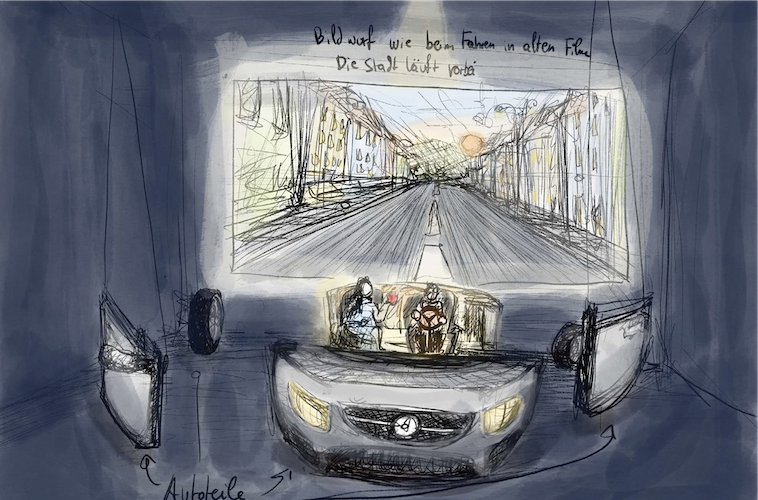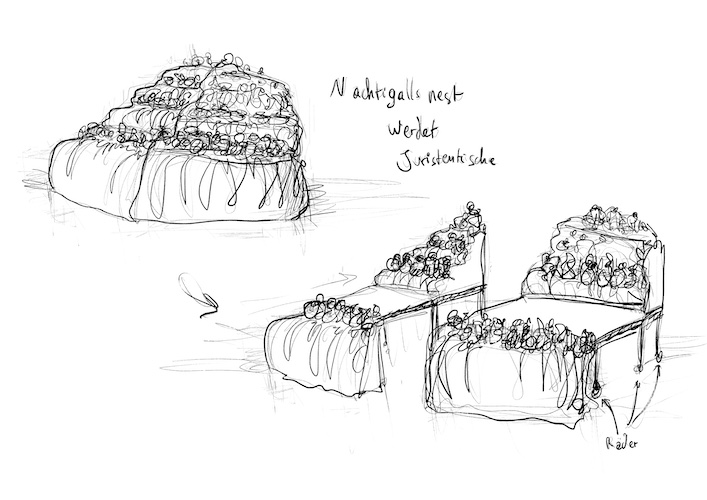
I first met Luka Swenson while attending a birthday party for REPLICA co-founder Diana; Régis and them had just done a deep listening workshop in the basement of the former Neukölln Finanzamt (of all things, although dancing on the grave of bureaucracy is really very ho-hum for Berlin). Though I would come to know much more of Luka's poetry and performative art in the subsequent few years, we initially talked about their librettos, some of which use found text. I said that found text seems to frequently have a flat, abstract, and atmospheric effect, whereas classical opera tends to be so melodramatic; could one make the inane poignant? Luka immediately said we should try working together on that idea, and we met several times to develop a concept for a melodramatic found-text opera.
In early 2019, however, they came upon the 2020 Berliner Opernpreis, an open call to develop short new operatic works run by the Neuköllner Oper, and we decided to develop a concept to submit for consideration. …And it wasn't considered sufficiently worthy to be workshopped and possibly performed; after all the work of preparing the proposal, we had become interested enough in the concept to not preclude finding another circumstance for performance at some point in the future, but as such futures remain uncertain, I think the somewhat bizarre and somewhat bold proposal merits a brief mention.
The piece had to be based, however free- or loosely, on one of two short stories by Ferdinand von Schirach, "Ein hellblauer Tag" or "Subotnik"; we chose from the latter, the story of a young lawyer who in her first big trial successfully defends the kingpin of a suspected kidnapping-prostitution ring, the final moment of reflection, doubt, and identity-questioning, which takes place in a Middle Eastern confectionery. We blew up the symbols and aesthetics of the sweet shop, all glass and glitter and pastels and powdered sugar, and imagined a similarly light and airy operetta where children sing about sweets and infatuation (think Schweigt stille, plaudert nicht, Bach's 'Coffee Cantata') over the spectre of the dark and dastardly underworld which has been brought to light, but not justice.

We put together a little group of people to be our production team: Luka did the brunt of the conceptual work, as well as drafting a poetic scene for the libretto; Jie Liang Lin and I would be ready to aid in conceptualization and writing in production, but I mostly merely edited and proofread the proposal; Helin Ulas formatted it into a pretty portfolio; Iris Christidi drafted stage designs; we found the Turkish composer Öz Kaveller to set the libretto to a modern, middle eastern score; and Ilyaz Gencturk to sing it when the time came.

I'm still excited by the scenic drawings which fire my imagination, as well as admiring of the lovely and professional proposal layout, appropriately light and delicate, whipped up by Helin. For the title of the piece, Luka selected the phrase 'bunte Würfeln' ('colourful cubes'), referring to pieces of lokum, from the short story, which makes for a beautifully suggestive image in abstraction.